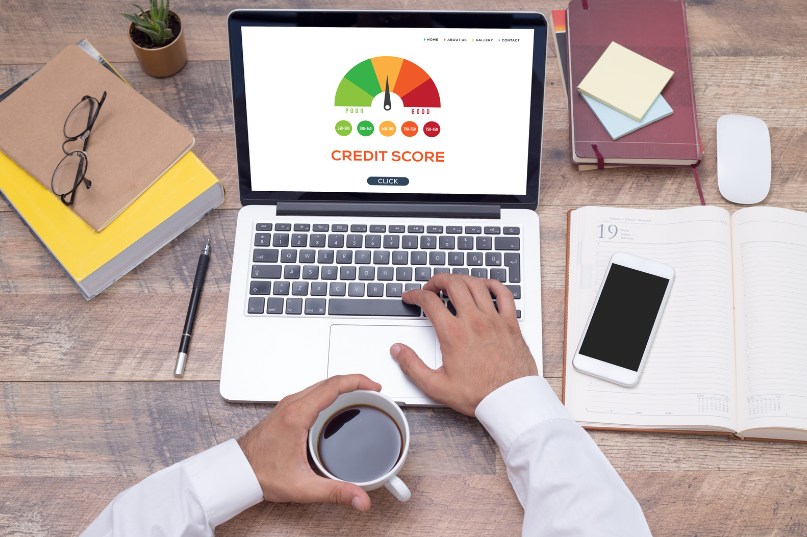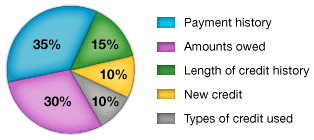Improving Your Credit Score: A Step-By-Step Guide

Your credit score plays a pivotal role in your financial life, influencing your ability to secure loans, obtain favorable interest rates, and even impact your housing and employment opportunities. But don't worry, if your credit score isn't where you want it to be, we're here to help. In this guide, we'll walk you through the steps to improve your credit score and achieve your financial goals.
Step 1: Understanding The 5 Factors that Determine a Credit Score:
- Payment History (35%) - Paying your bill on time
- Credit Utilization / Amounts Owed (30%) - How much of your available credit you are using. Keep this under 30%
- Credit History Length (15%) - The length you have had accounts opened
- Types of Credit Used (10%) - It's helps to have a good mix of credit (i.e. credit cards, retail accounts, installment loans, etc...)
- New Credit & Inquiries (10%) - Each time you apply for something you get a credit inquiry. Too many inquires can have a negative affect.

Step 2: Check Your Credit Report:
The first and crucial step in improving your credit score is to obtain a copy of your credit report from all three major credit bureaus - Equifax, Experian, and TransUnion. You're entitled to one free report from each bureau annually. Review your reports for errors, inaccuracies, or fraudulent activity. If you find any discrepancies, dispute them with the credit bureau to have them corrected. For more info on how to get your credit report, click here: Getting Your Credit Report
Step 3: Pay Your Bills on Time:
Payment history is a significant factor in your credit score. Make it a top priority to pay all your bills, including credit cards, loans, and utility bills, on time. Consistently meeting your payment due dates will have a positive impact on your credit score over time.
Step 4: Reduce Credit Card Balances:
Credit utilization, the ratio of your credit card balances to your credit limits, is another essential factor in your credit score. Aim to keep your credit card balances as low as possible, ideally below 30% of your credit limit. Reducing your balances will demonstrate responsible credit management.
Step 5: Avoid Opening Too Many New Credit Accounts:
Opening multiple new credit accounts within a short timeframe can negatively affect your credit score. Each new application results in a hard inquiry on your credit report. Limit new credit applications and only open accounts when necessary.
Step 6: Maintain a Mix of Credit Types:
A diverse credit mix, including credit cards, installment loans, and mortgages, can positively influence your credit score. If you're looking to improve your score, consider different types of credit accounts and manage them responsibly.
Step 7: Keep Old Accounts Open:
The length of your credit history matters. Closing older accounts can decrease the average age of your credit history, potentially lowering your score. Keep older accounts open to maintain a more extended credit history.
Step 8: Be Patient and Persistent:
Improving your credit score takes time. Be patient and persistent in your efforts. Even if your score is lower initially, consistent responsible credit management will gradually lead to improvement.
Conclusion:
Improving your credit score is an essential part of securing a better financial future. At Contemporary Mortgage Services, Inc., we're here to support you every step of the way. Remember that small, consistent efforts can lead to significant improvements in your credit score over time.
If you have any questions or need further guidance on improving your credit score, please don't hesitate to reach out to us. Your financial success is our priority, and we're here to help you achieve it.
For more info on credit scores, check out our other pages:
How Credit Scores Work
Getting Your Credit Report